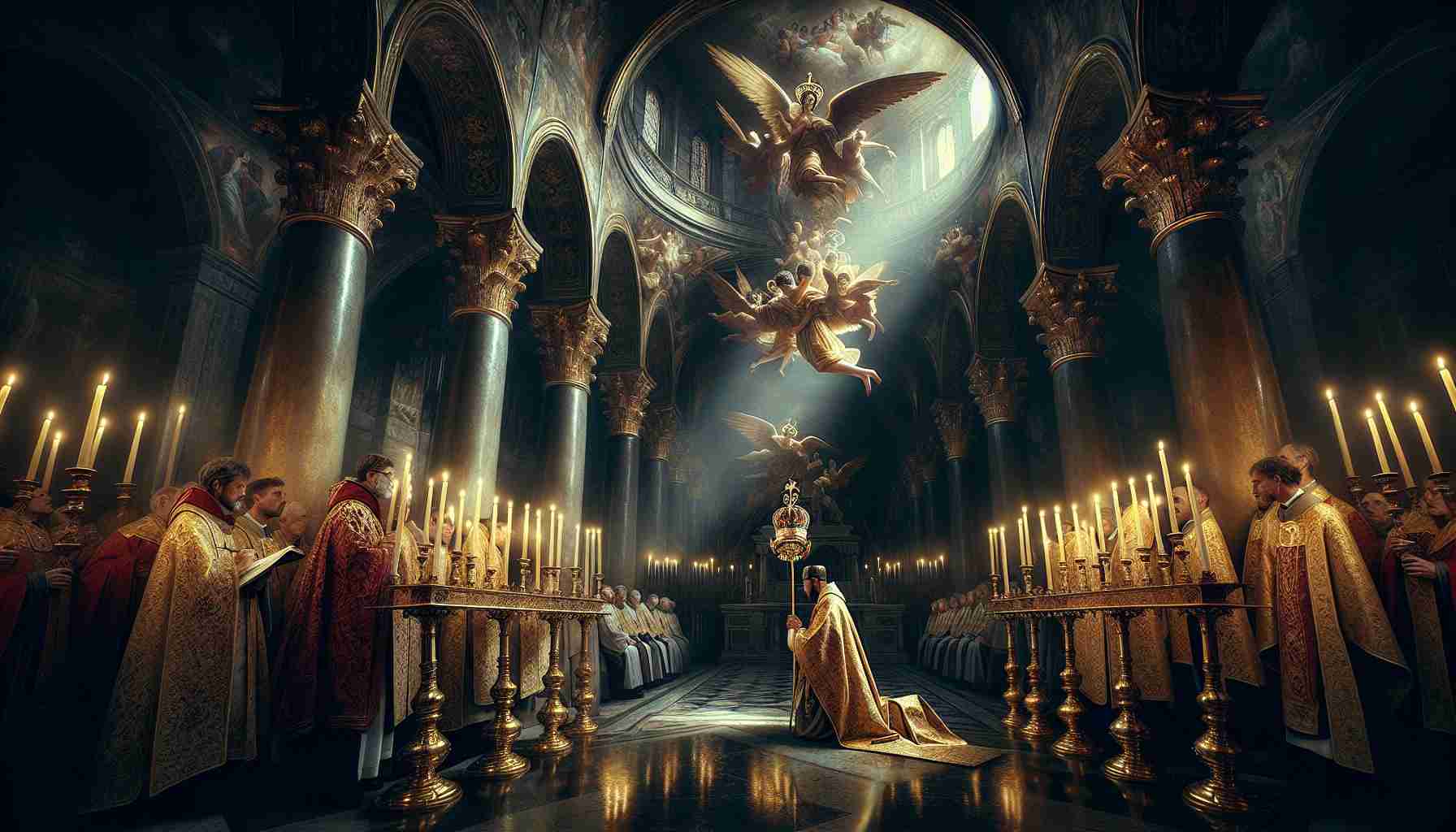

Rain drummed upon the cobblestones of the Via Sacra as dusk bled through the clouded sky, casting a bruised pall over the Eternal City. Rome, in the summer of 799, was no place of refuge. Twice in one day, Pope Leo III’s blood darkened the dust of the Palatine. Beaten by hands once raised in worship, he had fled the Lateran gates under a barrage of stones and slurs, blind in one eye, cloak torn, beard yanked from his face. Had the guards not intervened, the pope would have died in the city that had once received Paul in chains and crucified Peter upside down.
But heaven’s purposes are rarely shaped by ease.
As he healed beneath sanctuary walls at the Monastery of Saint Erasmus, Leo whispered lines of Paul’s epistle: “Let every soul be subject unto the higher powers. For there is no power but of God...” With trembling hand, he traced a cross over the fresh scars of his face—holy wounds, he believed, to sanctify his cause.
Whispers crossed the Alps like winter winds. In distant Aachen, the Frankish King Charlemagne received the reports with grim silence. The pope—God’s vicar on earth—had been assaulted. Apostates roamed Rome's streets while the throne of Peter lay trampled.
Charlemagne summoned his steed.
By late autumn, the king’s procession entered Rome like a river of iron. He wore no crown then, nor did Leo hold a scepter. Yet the bond between them—forged in blood, framed by Scripture—would unite altar and throne like mortar between stones. The rebel noblemen, before the majesty of the Franks, bowed their heads low—not to Leo, nor fully to Charlemagne, but to the might of a God who bends history as a potter shapes clay.
On Christmas Day, in Saint Peter’s whispering basilica, incense braided with candlelight, Pope Leo laid a golden crown upon Charlemagne’s head. From gallery to nave, the people roared, “Long live Charles, Augustus, crowned of God!”
In that reverent echo, a new Rome was born—not the empire of Caesars, but of Christendom. Rome no longer ruled alone with sword and edict, but with chalice and creed.
Pope Leo’s reforms would follow: land charters for bishops, liturgical harmonization from Frankish forests to Iberian hills, and Latin Christianity driven deep into Saxon heartlands. Where once idols stood, now tabernacles rose. Bells tolled salvation above rivers that had long carried barbarian blood.
But the old city smiled with more teeth than loyalty. Rome had been sacked too many times to forget that power invites envy. In 815, Leo thwarted a final insurrection by Roman nobles still bitter for their lost dominion. It would be his last political act. On June 12, 816, he died in his bed beside the Lateran, the sheets white as his conscience and the city cresting in silence.
Outside, beneath Mount Aventine’s shadow, pilgrims shuffled past his tomb, unaware of the centuries yet to unfold.
They would not see how Leo’s alliance—and Charlemagne’s coronation—bound church and crown like marrow to bone. They would not see how this union stirred crusaders to march, monks to script holy books by firelight, kings to kneel before bishops, and emperors to tremble at excommunication. Nor would they understand the seeds of discord also sown—how this mingling of heaven with empire would one day fracture as brother against brother over altars and kingships.
But Leo had seen only the charge: to secure a kingdom not built by hands but borne of faith. His was the legacy of Romans 13: to trust that God, not man, appoints rulers and sustains them through righteous partnership.
Many years later, as dusk again blanketed Rome, a nameless monk would lean against the colonnade of Saint Peter’s and whisper an old truth: that a pope who crowned an emperor had passed, and in dying, forged the Christian West not by armies or councils, but by the unyielding conviction of divine order.
The bells tolled that hour, neither mournful nor triumphant, only steady—as if heaven, in its symmetry, had nodded once more.